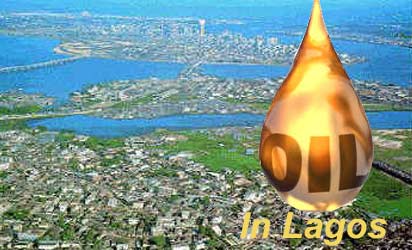By Failing to Reduce Pump Fuel Price, FGN Violates Deregulation Law – Peregrino Brimah
“Deregulation of the downstream oil sector will improve the efficient use of scarce economic resources by subjecting decisions in the sector to the operations of the forces of demand and supply. This will attract new sellers, buyers and investors into the market, thereby increasing competition, promoting overall higher productivity and, consequently, lowering prices over time. The ultimate effect of this chain of activities is increased gains for the people of Nigeria who would be getting the most out of their natural resources.
For example, following government’s deregulation in the telecommunication, there has been a reduction in call tariffs. Similar successes have also been recorded in the banking sector with the emergence of stronger banks with unprecedented spread to several other African countries. These are classic examples of the kind of positive effects deregulation could have on the oil sector.” – Federal Ministry of Finance; FAQ on Deregulation of the Downsteam Petroleum Sector and Removal of Fuel Subsidy, < http://www.fmf.gov.ng/component/content/article/3-trendingnews/63-faqfuelsubsidy.html>
The principle and implication of the above quote from the Ministry of Finance website is clear—by deregulating the downstream oil sector, Nigerians are subjected to the risks of higher global oil prices but at the same time meant to benefit from falls in oil prices and other possible pump price alleviations due to competitive market forces.
The world oil price has fallen to below $50/barrel. This has translated into drops in pump fuel prices across the world; but in violation of the downstream deregulation policy, the Nigerian Minister of Finance has just submitted that the Government will not be reducing the pump price till… quoting the Minister of Economy and Finance on December 17, “Mrs. Okonjo-Iweala said in Abuja that the decision to review fuel price either upwards or downwards would only be taken after the current crisis in global oil prices has been settled.” < http://www.premiumtimesng.com/business/173454-nigeria-will-not-reduce-fuel-price-till-oil-crisis-finance-minister.html>
By deregulating this sector of the economy, NNPC and a host of cabal private marketers are involved in the import, supply and sale of petroleum products. Oil prices have dropped by 50%; this means, the private Government coterie of oil importers who will likewise not be reducing the price the commodity is sold at the pump will again be amassing humongous profits off of the Nigerian masses.
The people recently held oil subsidy protests which became deadly, in 2012 to be precise due to the Government’s desire to completely remove fuel subsidies and thus increase pump prices to the max. Since then much of the subsidy had been removed and Nigerians have been paying N97 at the pump. For once should Nigerian not benefit the fortune of lower global prices of oil? Should the masses always suffer regardless of cost or competing market factors?
What is the meaning and explanation of Minister Ngozi Okonjo-Iweala’s statement, that the price will not be adjusted till global prices “finally stabilize?” Is this not an open ended, “deregulated” statement? When will we know that the prices have finally settled? Will a trumpet be blown? If the promise of lowering prices over time as contained in the Ministry website statement does not occur when supply costs drop, then what other market factors can ever provide this benefit to the people of Nigeria as stated?—A change in government only? Why can Nigerians not begin to benefit the “increased gains” from the fall as they suffer from the higher cost of petroleum products as the deregulation of price controls promises?
How long will the Nigerian masses continue to suffer regardless of rebasing of the economy, high or low oil prices and all other economic indices? Will good and bad economic forces always result in hardship for the masses and more private jets for the cabal? If this violation is not oppression and robbery of the masses then what is it?


Comments
Post a Comment